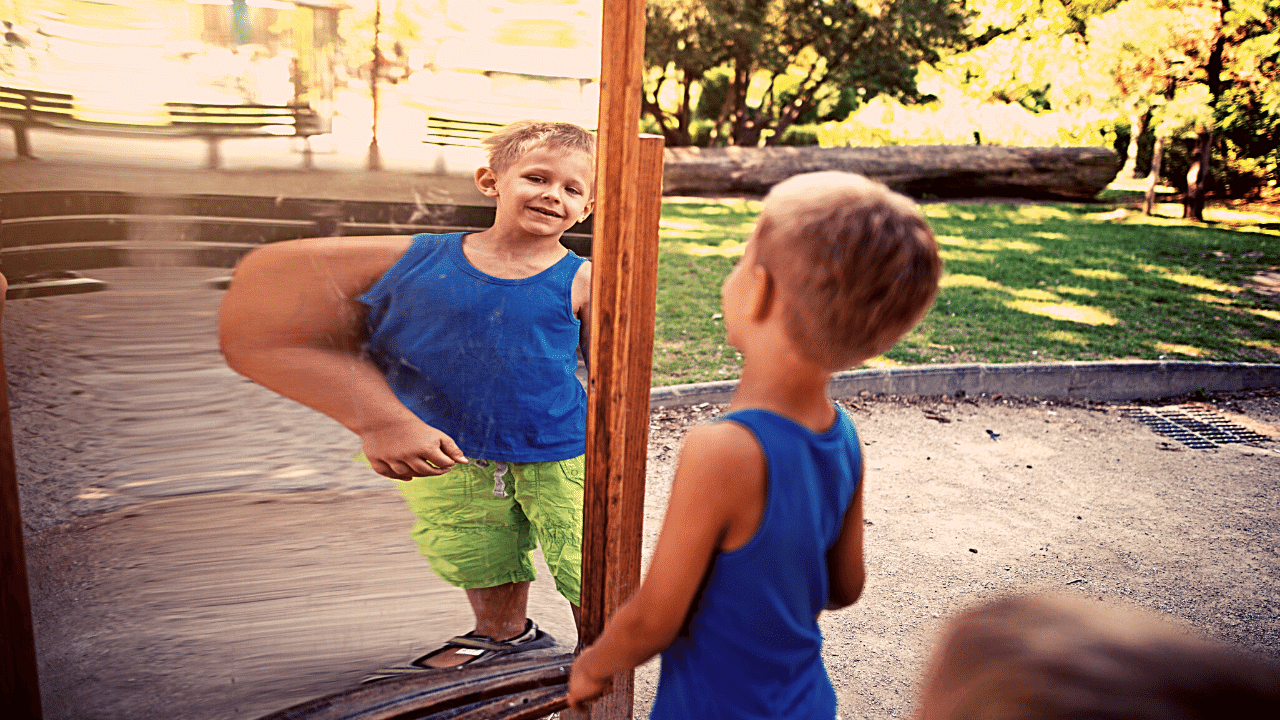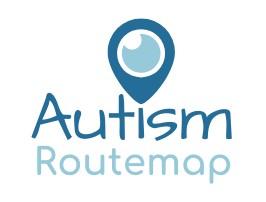The Mirror that Lies

Did you look at yourself in the mirror this morning? Do you like the person who was looking back at you? Or perhaps, like so many of us, you noticed your flaws rather than your assets.
Some years ago, I visited a funfair which had distortion mirrors as part of the attraction. You know the ones that change your proportions to make you look ridiculous?
Well, if laughter is the best medicine, we certainly got a good dose that day! Elongated heads, enormous stomachs and bulging biceps to name a few altered body parts. Personally, I liked the one that made me look like a top-notch athlete!
I was thinking about those mirrors this week during a conversation with a client. Ben (not his real name) was describing what he thought of himself. He used the words: “worthless, a failure and not good enough.”
I was surprised by what he said since I know that he is a young man with many great qualities and talents. It sounded to me like a very distorted picture of reality.
But just in case I was being overly optimistic, I asked another person in the session to describe Ben. Without a moments’ hesitation, he said, “insightful, intelligent, and articulate.”
How is it that these perspectives were so different? And why are we so hard on ourselves? We’re unlikely to label a friend as worthless or a failure when they are struggling with a challenge.
A few months ago I burnt my hand on the oven while cooking. I’m left with an unusual scar because our kitten scratched me in the same place while the wound was still healing.
Our bodies have a wonderful way of fixing scrapes, cuts, burns and scratches. Along with the blood cells that clot, seal the wound and attack bacteria, we also form scar tissue which acts like a natural plaster.
Scar tissue is different from your other skin tissue. It’s made from collagen which is less elastic. This creates a stiff protective covering which allows the vulnerable area to heal.
In the same way, we are equipped with healing systems which help us to recover from emotional pain. Our minds develop protective layers in areas where we have been hurt and feel vulnerable.
The mental equivalent of scar tissue is “negativity bias”. This is our tendency to tune in to negative information and expect things to go badly. Just look at the news headlines and you will see what piques human interest!
Negativity bias has a protective function. If you went through a horrible experience, your brain will try to protect you from suffering like that again. By expecting the worst to happen, you can either prepare for it or even better, avoid it altogether.
Ben’s opinion of himself as someone who is worthless and a failure comes courtesy of negativity bias. No doubt he’s had times when he failed. That’s part of being human. But his embarrassment and shame have resulted in a strong belief which keeps him playing small. After starting his engineering degree, he was so convinced he would fail, he didn’t even write his exams!
Peter Pan said,
“the moment you doubt whether you can fly, you cease for ever to be able to do it”.
Now he also advocated faith, trust and pixie dust. I suggest you keep the faith and trust but ditch the pixie dust in favour of a different narrative. When we put our negative beliefs through a lie-detector test, we often discover another more valid and truthful perspective.
Sometimes, because our beliefs are so strong, we need a little help from our friends (cue the song by Joe Cocker) to see that different angle. We need someone to tell us that we are looking at a distorted image and it isn’t, in fact, reality.
We are not the same person we were 10 years ago, 5 years ago, 2 years ago or even 2 weeks ago. We have the capacity to learn and change. What we think of as a flaw, may in fact be a virtue. But our beliefs often reflect the past and are clouded by negativity bias.
Our beliefs need an upgrade!
So put your distortion mirror in the bin where it belongs. Imperfection is part of being human. A toddler learning to walk doesn’t conclude that they are a failure when they take a tumble. They keep trying because they believe that they will walk.
Listen to what others say about you and next time you get out your judge’s gavel, ask yourself what you would tell a friend in the same situation.
Zig Ziglar said:
"we cannot start over, but we can begin now and make a new ending.”
To new endings!

Linda empowers and equips people to communicate effectively, find freedom in their relationships and experience greater emotional well-being.
Whenever you’re ready, here are three ways I can help you:
- Grab a copy of: “Your guide to life after an adult autism diagnosis. Taking the next step into an empowered future!”
Use this guide to clarify how autism impacts you personally so you can:
- understand and clearly communicate your needs
- explain the diagnosis from your perspective
- take action to accommodate your needs and identify skills you want to develop
Click HERE to get your free copy
- Work with me directly
If you’re interested in working with me privately to fast track your progress in developing an emotionally healthy life and harmonious relationships, then I invite you to schedule a FREE call to discuss the options that are available.
Click HERE to book your call.
- Join our private Facebook group.
This is a place to connect with like-minded people to share challenges and solutions … and cheer each other on in your journey.
Click HERE to join
Disclaimer
This blog post is for educational purposes and should not be taken as medical or therapeutic advice. If you need medical or therapeutic support, please consult your medical practitioner or therapist.

